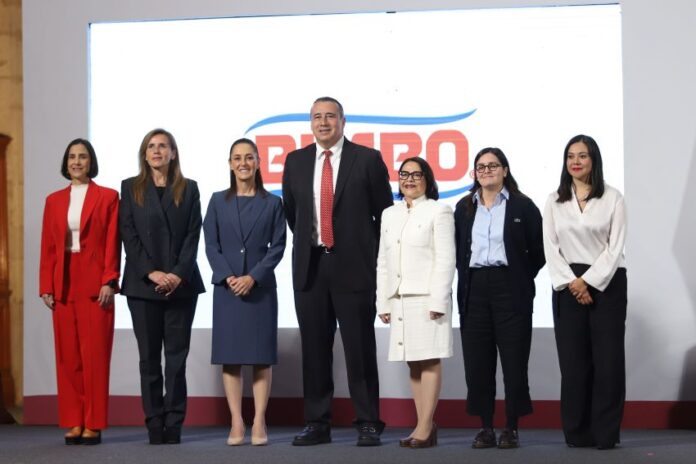Mexican breadmaker Grupo Bimbo on Thursday announced plans to invest US $2 billion in seven states over the next three years, generating 2,000 jobs.
The investment will go toward strengthening Bimbo’s infrastructure, according to José Manuel González, president and director general of Bimbo México, who made the announcement during President Claudia Sheinbaum’s morning press conference.
¿Sabías que? Grupo Bimbo es dueño de todas estas marcas. pic.twitter.com/KNZ4XxgrBG
— Cerebros (@CerebrosG) May 16, 2022
The seven states that will benefit are Baja California, Yucatán, Nuevo León, Querétaro, Puebla, México state and Mexico City (which is a federal entity with legal standing similar to a state).
González said that in addition to the 2,000 direct jobs, the funding could result in an additional 10,800 indirect jobs. Since its founding in December 1945, Bimbo has created 80,000 jobs in Mexico, with another 460,000 jobs linked indirectly to the breadmaker’s operations.
“We will be celebrating our 80th anniversary this year,” González said, “and we have learned that when Mexicans work together we always make progress.”
González said the investment’s primary objectives are to increase productive and technological capacity, while also improving Bimbo’s research and development divisions.
The funds will boost the company’s sustainability model by modernizing its fleet of electric delivery vehicles and by creating more environmentally friendly packaging for its products. At least 30 factories will be modernized as well.
The Bimbo executive said the development project dovetails with Sheinbaum’s ambitious Plan México, which aims to align private investment with social development and sustainability as it reduces imports and boosts domestic production.
Sheinbaum applauded the Bimbo announcement, saying the investment demonstrates “confidence in our country among national and foreign businesspeople.”
“This is extremely important because it provides certainty for investors and serves to attract other domestic and foreign investments,” Sheinbaum said.
Bimbo will continue to work closely with Mexican farmers, González said. The breadmaker currently acquires 97% of the ingredients needed for its products from domestic sources.
“This investment demonstrates Bimbo’s commitment to the well-being of [Mexico’s] progress,” González said, adding that the company will continue to support government initiatives such as the anti-inflation package aimed at alleviating the prices of consumer goods and the Water Security and Sustainability Agreement.
When asked about the possible effects of U.S. tariffs on Mexican imports that are set to go into effect on August 1, González said he expects the impact will be minimal.
“We don’t believe we will be affected if tariffs are imposed,” González said.
Bimbo has been exporting its products to the United States for more than 20 years. The U.S. and Canada are Grupo Bimbo’s primary export markets, accounting for nearly 50% of its sales.
By a sad coincidence, the announcement came on the same day of the passing at age 97 of Bimbo co-founder Roberto Servitje, a key contributor to the company’s growth over the decades.
With reports from El Economista, Forbes, La Jornada and Expansión
